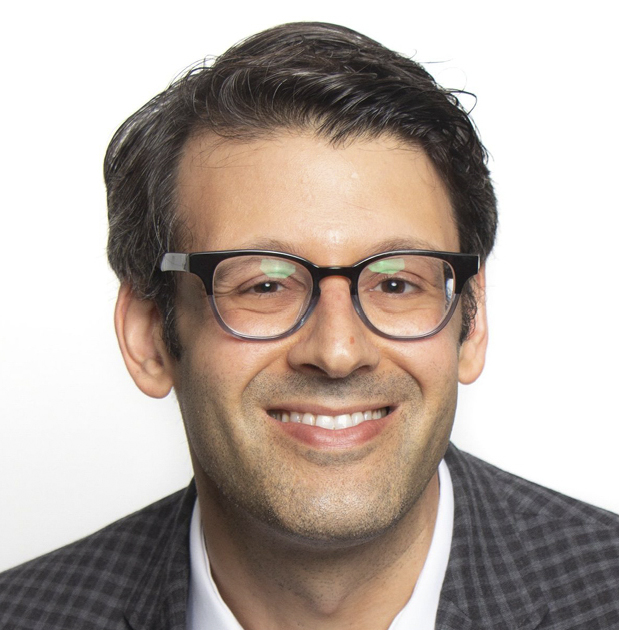A Democrat voting for a Republican, or vice versa, seems to Lee Drutman like an impossible chasm to cross these days. What can America build to bridge that wide gulf? In Drutman’s view, it’s a “proportional multi-party democracy.”
He believes the political reform America needs now is a solid third, or fourth, or fifth choice of parties beyond the two that currently lead national politics.
Drutman, a political scientist and senior fellow in the Political Reform program at the New America Foundation, will round out this week’s Chautauqua Lecture Series theme, “The Vote and Democracy,” with his lecture at 10:45 a.m. Friday, July 29, in the Amphitheater, making the case for why we should embrace a multi-party system.
“We are at a moment of potential transformation of our democracy,” Drutman said. “This is a real hinge point moment in history in which things could go in a lot of different directions. The stakes are incredibly high. But there’s also a tremendous opportunity to innovate and build something new.”
A political system with additional parties could “better represent the diversity and pluralism of America, providing ways to forge new compromises and bring new voices into our representative system of government that is always changing and evolving,” Drutman said.

Many voters feel increasingly alienated by the lack of a political middle ground on which to stand, and feel obliged to “choose the lesser of two evils,” Drutman said. A growing number of Americans now identify as Independents, rejecting the forced duality of the current system. Many are voicing wishes for more than two options on the ballot.
How does the nation progress toward a multi-party system? One new initiative known as fusion voting — where multiple parties can support the same candidate on the ballot — would provide disheartened voters a step toward moderation in place of the two-party system. The increased influence this might present third parties “would be a tremendous step forward,” Drutman said, in the building of a “much needed moderate party in our politics.”
“Really, we need five or six parties to effectively represent the diversity of values, experiences and perspectives in this country,” Drutman said.
The key is striking a balance — a healthy range of political groups competitive enough to give voters the chance to make “real and meaningful choices,” while avoiding excessive fragmentation.
Beyond these proposals, Drutman advocated for a broader move toward multi-member congressional districts, which would enable new parties to thrive. He has also made the case for enlarging the House of Representatives to ease proportional multi-party elections, a topic on which he testified Thursday before the Select Committee on the Modernization of Congress.
“We need more diversity and pluralism in our elected bodies. We need new voices. There’s a lot of perspectives that are not well represented there,” Drutman said. “Expansion is the best way to bring more people in without kicking out the people there now who also have valuable experience to offer.”
Without expanding the House to include districts with multiple representatives, Drutman said, gerrymandering continues to hinder equal representation. This constituency manipulation, further enabled by mandatory redistricting following the 2020 census, allows candidates to win regardless of whether they have the majority’s support or not, and exists solely because of the single-member district.
“A proportional voting system helps to combat the evils of gerrymandering, because if you have proportional multi-member districts, gerrymandering basically becomes irrelevant,” Drutman said.
Drutman raised the question of why seemingly more Americans than ever distrust the voting process and perceive their vote as insecure. He thinks it’s an “outgrowth of our binary two-party system, fomented by political leaders” seeking to sow distrust and demonize opponents.
“Because this country is evenly split,” Drutman said, “you have these narrow elections, and tremendous hatred for the other side. So it’s natural — if the election margins are tight, you’re likely to believe it if your side says ‘the system is rigged, it was corrupt, they cheated.’ ”
In studying other countries with multi-party structures, Drutman has found that voters in losing parties are “more likely to accept their losses in proportional systems, because the stakes are lower. A coalition will form roughly around the political middle no matter what.” In the current American system however, “if you get 50.1% of the vote, you get all the power,” he said, leading voters to feel much more of a blow, especially when the competing side is seen as a dangerous and distant foe.
“It’s hard to have legitimate elections when you don’t think the other side is legitimate opposition,” Drutman said.
In his talk, Drutman will reflect on the ways in which a multiplicity of parties will actually bring Americans closer together, not create further division. The gap between political extremes may be narrowed not by less political debate, but by more.
“Our binary arrangement shuts down thinking,” Drutman said, but, “the more sides we have, the more thinking we do, and the more we’re willing to consider.”




